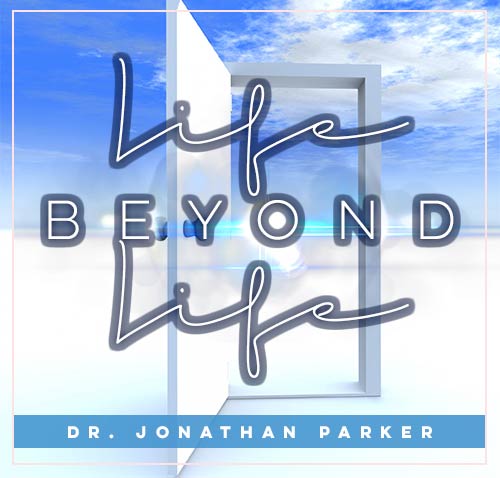Afterlife Beliefs Across Cultures and Religions

Before diving in, please note: This post is for informational purposes only. If you’d like to know more about how we approach topics, feel free to check out our friendly Disclaimer Page.
Hey there, amazing readers! 🖐️ Just a quick note: yes, we know there are a lot of ads here. Trust us, we get it—it’s not the prettiest look, but they help us keep this blog alive and kicking. Those pesky little ads cover the costs of all the behind-the-scenes magic, from hosting and tech stuff to creating content we hope you’ll love.
We’re committed to delivering quality posts, and your support (even just sticking around despite the ads) means everything to us. So, bear with us, and thanks for helping us keep the good vibes rolling. Now, on to the fun stuff! 😉
TRANSLATE BUTTON AT THE END OF THE ARTICLE
Introduction: Understanding Afterlife Beliefs
Afterlife beliefs have been a cornerstone of human culture and religion since ancient times.
These beliefs often shape individuals’ moral compass, provide comfort in times of grief, and offer a sense of purpose beyond this earthly realm.
Across different cultures and religions, the concept of an afterlife varies significantly, reflecting the diverse ways in which humanity has grappled with the mysteries of existence and what lies beyond.
Throughout history, civilizations have developed intricate and multifaceted beliefs about what happens to the soul after death.
These beliefs are often deeply rooted in cultural practices, religious texts, and oral traditions that have been passed down through generations.
By exploring afterlife beliefs across various cultures and religions, we can gain a deeper understanding of the human experience and the ways in which different societies have sought to make sense of the unknown.
Ancient Egyptian Afterlife Beliefs
Ancient Egyptian afterlife beliefs are among the most well-documented and elaborate in history.
In Egyptian mythology, it was believed that after death, the soul would journey to the underworld and face judgment by the god Osiris.
The deceased would undergo a series of trials to prove their worthiness for the afterlife, with their heart being weighed against the feather of Ma’at, the goddess of truth and justice.
If the deceased passed the judgment, they would be welcomed into the afterlife, known as the "Field of Reeds," a paradise where they could live eternally in peace and prosperity.
To ensure a successful journey to the afterlife, the ancient Egyptians buried their dead with grave goods, such as food, clothing, and possessions, to sustain them on their journey and provide for their needs in the afterlife.
Afterlife Beliefs in Hinduism
Hinduism, one of the world’s oldest religions, has a complex and multifaceted belief system regarding the afterlife.
In Hindu tradition, it is believed that the soul is eternal and undergoes a cycle of birth, death, and rebirth, known as samsara.
The ultimate goal for Hindus is to achieve moksha, or liberation from the cycle of reincarnation, and reunite with the divine.
According to Hindu beliefs, a person’s actions in this life, known as karma, will determine their fate in future lives.
Those who lead a virtuous life and fulfill their moral duties will be reborn into a higher caste or achieve union with the divine, while those who lead a sinful life may be reborn into a lower caste or experience suffering in future lives.
Afterlife Beliefs in Buddhism
Buddhism, founded by Siddhartha Gautama, or the Buddha, in the 6th century BCE, offers a unique perspective on the afterlife.
In Buddhist teachings, the cycle of rebirth, known as samsara, is also central to the belief system.
However, Buddhists seek to break free from this cycle by attaining enlightenment, or nirvana, and transcending the cycle of birth and death.
According to Buddhist beliefs, the actions of an individual, known as karma, will determine their future rebirths.
By following the Eightfold Path and practicing meditation and mindfulness, Buddhists seek to purify their minds and achieve enlightenment, ultimately liberating themselves from the cycle of suffering and rebirth.
Afterlife Beliefs in Christianity
Christianity, one of the world’s largest religions, has a distinct view of the afterlife based on the teachings of Jesus Christ.
In Christian beliefs, those who accept Jesus as their savior and live according to his teachings will attain eternal life in heaven, a place of joy, peace, and communion with God.
Conversely, those who reject Jesus or live a sinful life may face damnation in hell, a place of eternal punishment and separation from God.
The concept of judgment, salvation, and redemption are central to Christian beliefs about the afterlife, offering believers hope for a future beyond this earthly realm.
Afterlife Beliefs in Islam
In Islam, the afterlife is a central tenet of the faith, with beliefs about heaven, hell, and judgment deeply ingrained in Islamic teachings.
Muslims believe in a Day of Judgment when all souls will be resurrected and held accountable for their actions in this life.
Those who have lived a righteous life and followed the teachings of Islam will be rewarded with paradise, a place of eternal bliss and fulfillment.
Conversely, those who have led a sinful life and rejected the teachings of Islam may face punishment in hell, a place of torment and suffering.
The concept of predestination, or qadar, also plays a role in Islamic beliefs about the afterlife, as Muslims believe that Allah has predetermined the fate of every individual based on their actions and faith.
Afterlife Beliefs in Judaism
Judaism, one of the oldest monotheistic religions, has a nuanced and evolving view of the afterlife.
While traditional Jewish beliefs do not place as much emphasis on the afterlife as some other religions, there are still diverse interpretations of what happens to the soul after death.
In Jewish tradition, it is believed that the soul continues to exist after death and may undergo a period of purification before entering the afterlife.
The concept of Olam Ha-Ba, or the World to Come, is a central aspect of Jewish beliefs about the afterlife, where the righteous will be rewarded with eternal life in the presence of God.
Afterlife Beliefs in Native American Cultures
Native American cultures have a rich tapestry of beliefs about the afterlife that vary greatly among tribes and communities.
In many Native American traditions, it is believed that the soul continues to exist after death and may journey to the spirit world, where it can reunite with ancestors and spirits.
For some Native American tribes, the afterlife is seen as a continuation of life on earth, where the soul can continue to engage in activities and relationships.
Other tribes believe in a cycle of reincarnation, where the soul is reborn into a new body to continue its spiritual journey.
Afterlife Beliefs in African Traditional Religions
African traditional religions encompass a diverse range of beliefs and practices regarding the afterlife.
In many African cultures, it is believed that the soul continues to exist after death and may journey to the spirit world or ancestral realm, where it can communicate with ancestors and spirits.
Ancestor veneration is a common practice in African traditional religions, as it is believed that the spirits of ancestors can influence the lives of the living and provide guidance and protection.
The afterlife is often seen as a realm of spiritual connection and continuity, where the living and the dead are intricately linked.
Afterlife Beliefs in Chinese Religions
Chinese religions, such as Taoism and Confucianism, have unique perspectives on the afterlife that are deeply rooted in Chinese cultural traditions.
In Taoism, it is believed that the soul continues to exist after death and may journey to the spirit world, where it can cultivate immortality and achieve harmony with the cosmos.
Confucianism, on the other hand, focuses more on the importance of honoring ancestors and maintaining family connections in the afterlife.
Ancestor worship and rituals play a central role in Confucian beliefs about the afterlife, ensuring that the spirits of ancestors are respected and cared for by the living.
Afterlife Beliefs in Norse Mythology
Norse mythology, the pre-Christian religion of the Germanic peoples, offers a unique and colorful view of the afterlife.
In Norse beliefs, warriors who die in battle are taken to Valhalla, a majestic hall ruled by Odin, where they can feast, fight, and prepare for Ragnarok, the final battle of the gods.
For those who do not die in battle, the afterlife is believed to be Hel, a realm ruled by the goddess Hel, where the souls of the dead reside in a dark and gloomy underworld.
Norse mythology paints a vivid picture of the afterlife as a place of heroism, honor, and eternal struggle.
Conclusion: Common Threads in Afterlife Beliefs
While afterlife beliefs across cultures and religions may vary widely in their details and practices, there are also common threads that run through many of these beliefs.
The concept of judgment, reward, and punishment based on one’s actions in this life is a recurring theme in afterlife beliefs, reflecting the universal human desire for justice and accountability.
Additionally, the belief in the continuity of the soul beyond death and the potential for spiritual growth and enlightenment in the afterlife is a shared element in many religious traditions.
Whether through reincarnation, resurrection, or eternal life in a heavenly realm, afterlife beliefs offer believers hope for a future beyond the confines of this earthly existence.
By exploring the diverse afterlife beliefs of different cultures and religions, we can gain a deeper appreciation for the richness and complexity of the human experience and the myriad ways in which humanity seeks to make sense of the mysteries of life and death.
Ultimately, afterlife beliefs serve to provide comfort, guidance, and meaning to individuals as they navigate the journey from this world to the next.

The Enlightenment Journey is a remarkable collection of writings authored by a distinguished group of experts in the fields of spirituality, new age, and esoteric knowledge.
This anthology features a diverse assembly of well-experienced authors who bring their profound insights and credible perspectives to the forefront.
Each contributor possesses a wealth of knowledge and wisdom, making them authorities in their respective domains.
Together, they offer readers a transformative journey into the realms of spiritual growth, self-discovery, and esoteric enlightenment.
The Enlightenment Journey is a testament to the collective expertise of these luminaries, providing readers with a rich tapestry of ideas and information to illuminate their spiritual path.
Our Diverse Expertise 🌟
While our primary focus is on spirituality and esotericism, we are equally passionate about exploring a wide range of other topics and niches 🌍📚. Our experienced team is dedicated to delivering high-quality, informative content across various subjects ✨.
To ensure we provide the most accurate and valuable insights, we collaborate with trusted experts in their respective domains 🧑🏫👩🏫. This allows us to offer well-rounded perspectives and knowledge to our readers.
Our blog originally focused on spirituality and metaphysics, but we’ve since expanded to cover a wide range of niches. Don’t worry—we continue to publish a lot of articles on spirituality! Frequently visit our blog to explore our diverse content and stay tuned for more insightful reads.






